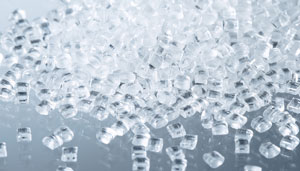Green tie-ups: LG Chem/ADM in jvs to produce lactic acid/PLA in US; Mitsui Chemicals/Teijin to market biomass-derived BPA and PC resins

South Korean chemical firm LG Chem and US-based biosolutions firm ADM have launched two joint ventures for US production of lactic acid and polylactic acid to meet growing demand for a wide variety of plant-based products, including bioplastics. Pending final investment decisions, the joint ventures have chosen Decatur, Illinois, US, as the location of their intended production facilities.
The first joint venture, GreenWise Lactic, would produce up to 150,000 tonnes/year of high-purity corn-based lactic acid. ADM would be the majority owner of GreenWise, and would contribute fermentation capacity from its Decatur bioproducts facility to the venture.
The second joint venture, LG Chem Illinois Biochem, would be majority-owned by LG Chem. It would build upon LG Chem’s expertise in bioplastics to build a facility that will use product from GreenWise Lactic to produce approximately 75,000 tonnes/year of polylactic acid (PLA).
Global demand for lactic acid – which is used broadly in food, feed and cosmetics in addition to industrials like bioplastics – was valued at approximately USD 2.9 billion in 2021, with an expected annual growth rate of 8%. Global demand for bioplastics and biopolymers is projected to grow from USD 10.7 billion in 2021 to US$29.7 billion by 2026, representing annual growth of 22.7%.
The joint ventures, which are subject to required regulatory approvals, hope to make final investment decisions around the Decatur projects in 2023. Pending final investment decisions and approvals, construction would be targeted to begin in 2023, and production in late 2025 or early 2026, with the two joint ventures supporting more than 125 jobs in the Decatur region
ADM CEO Juan R. Luciano stated, “BioSolutions is already growing rapidly, with US$136 million in year-over-year revenue growth in the first half of 2022, and with these two new joint ventures, we’re planning to take the next growth step, greatly expanding our ability to meet growing demand for plant-based solutions.”
LG Chem CEO Hak Cheol Shin commented, “The establishment of this joint venture is a sustainable growth strategy that can directly contribute in solving environmental issues such as climate change and waste plastics,” and added, “LG Chem is the first Korean company to build a PLA plant with integrated production capacities ranging from raw materials to the final product. With the establishment of this JV, LG Chem will not only procure production capacities for highly pure lactic acid needed for commercial-scale PLA production, but will also be able to apply biomaterials in the development of various high-value-added products. Based on eco-friendly materials, which is an axis for new growth engines, we will respond to the rapidly changing market and customers, while becoming a market leader.”

Meanwhile in other news, Japanese firms Mitsui Chemicals and Teijin Limited say that they will become Japan’s first companies to develop and market biomass-derived bisphenol A (BPA) and polycarbonate (PC) resins, that will support efforts to achieve carbon neutrality by reducing greenhouse gas (GHG) emissions throughout product lifecycles.
The joint initiative follows Mitsui Chemicals’ receipt of ISCC PLUS certification from the International Sustainability and Carbon Certification (ISCC), based on which Mitsui Chemicals will begin supplying biomass BPA produced with the mass-balance approach. In the ISCC PLUS-certified mass-balance approach, materials are verifiably tracked through complex value chains, as in the case of biomass-derived raw materials being mixed with petroleum-derived raw materials to create products.
Teijin also will begin developing and producing biomass PC resin using the same BPA.
In May 2022, Mitsui Chemicals acquired ISCC PLUS certification for BPA raw material used in PC resins. Mitsui Chemicals will now become the first Japanese company to produce commercial biomass-derived BPA offering the same physical characteristics as those of conventional petroleum-derived BPA.
Teijin will procure biomass-derived BPA from Mitsui Chemicals to produce biomass-derived PC resins possessing the same physical characteristics as the company’s existing petroleum-derived PC resins, which will allow these new biomass-derived versions to be used in commercial applications such as automotive headlamps and electronic components.
By expanding sales of products containing plastics produced through biomass conversion, the two companies aim to develop and produce more environmentally friendly products throughout their supply chains.
Mitsui Chemicals, for example, is considering expanding its procurement network for bio-based hydrocarbons in order to provide stable supplies of related products to the market. The company, which is in the process of acquiring ISCC PLUS certification for biomass naphtha derivatives, has already received certification for phenol, acetone, BPA and alpha-methyl styrene.
The aim is to acquire ISCC PLUS certification for all of the company’s phenol-chain products and then begin sales within fiscal 2023 ending in March 2024.
Teijin also expects to acquire ISCC PLUS certification in the first half of fiscal 2023 and thereafter start commercial production of biomass-derived PC resins. Teijin plans to emphasise to customers that conventional petroleum-derived PC resins can be easily replaced with biomass-derived versions for more environmentally friendly products.
The demand to reduce GHG emissions throughout supply chains in order to support carbon neutrality is rapidly increasing, creating needs for more low-environmental impact products. PC resins recycled from used final-products are applicable in automotive and electronics uses, so the development of diverse low-environmental impact PC resins is highly anticipated.
Since December 2021, Mitsui Chemicals has been using naphtha crackers as core equipment in its petrochemical plants, allowing petroleum-derived naphtha to be replaced with waste vegetable oil and residual oil-derived bio-based hydrocarbons. The company plans to continue introducing derivatives by using the ISCC PLUS-certified mass-balance approach to produce biomass-derived raw materials via chemical reaction.
Teijin, meanwhile, will continue developing low-environmental impact recycled PC resins, in addition to conventional PC resins using petroleum-derived raw materials, aiming to introduce new environmentally friendly PC resins.
(PRA)
Subscribe to Get the Latest Updates from PRA Please click here
©2022 Plastics and Rubber Asia. All rights reserved.

©2022 Plastics and Rubber Asia. All rights reserved.
Home Terms & Conditions Privacy Policy Webmail Site Map About Us




















